Pretty in Pink (1986)
“You don’t understand that it has nothing at all to do with you.”
|
Synopsis: |
|
Genres, Themes, Actors, and Directors:
Review: At its core, this is a story about class relations — characters literally live “across the tracks” from one another — as epitomized by the unbearably snobbish, white-suited Steff (James Spader): … and his bullying girlfriend Kate (Emily Longstreth, standing here next to Gina Gershon): Meanwhile, McCarthy represents someone trying to navigate both sides of the coin: … though truthfully, he simply comes across like a bland wet blanket. Much more colorful — if intentionally annoying — is Jon Cryer as Andie’s lovesick friend: … while Annie Potts steals every scene she’s in as Andie’s slightly-older boss and friend; the sequence in which she reminisces about her prom is my favorite in the entire movie: Redeeming Qualities and Moments:
Must See? Links: |
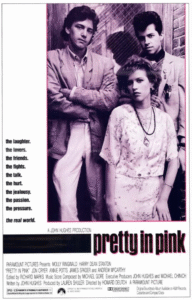
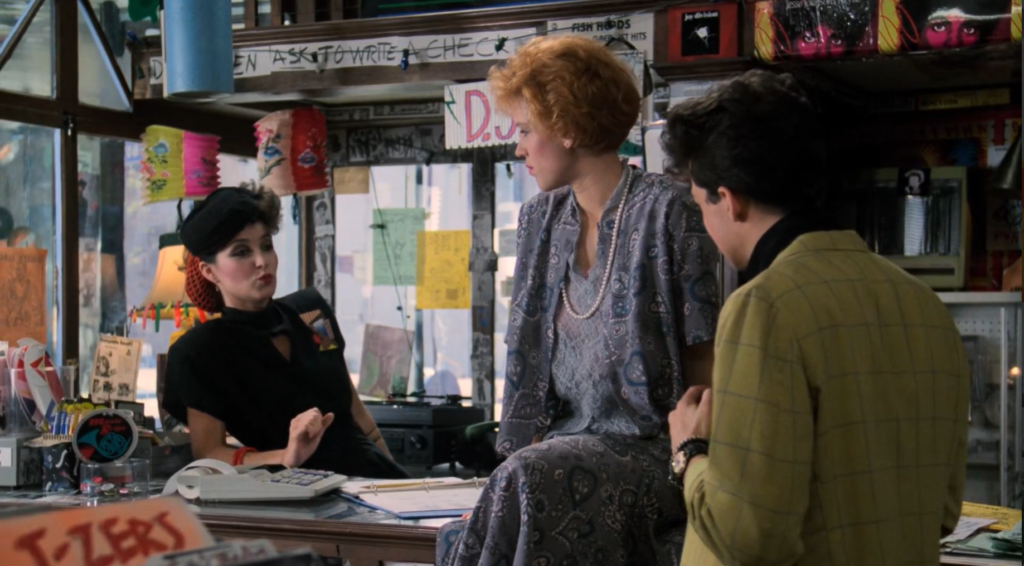
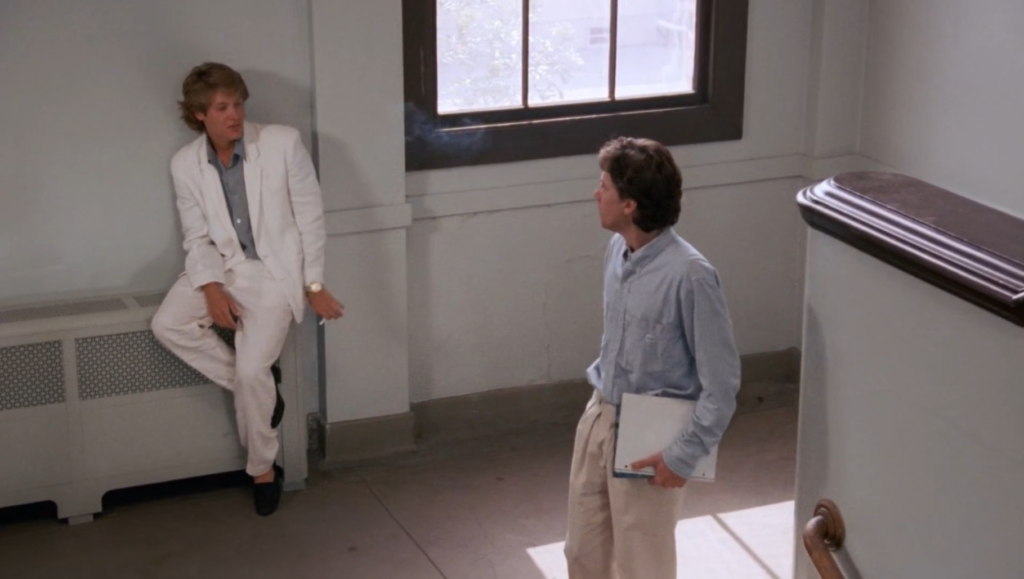
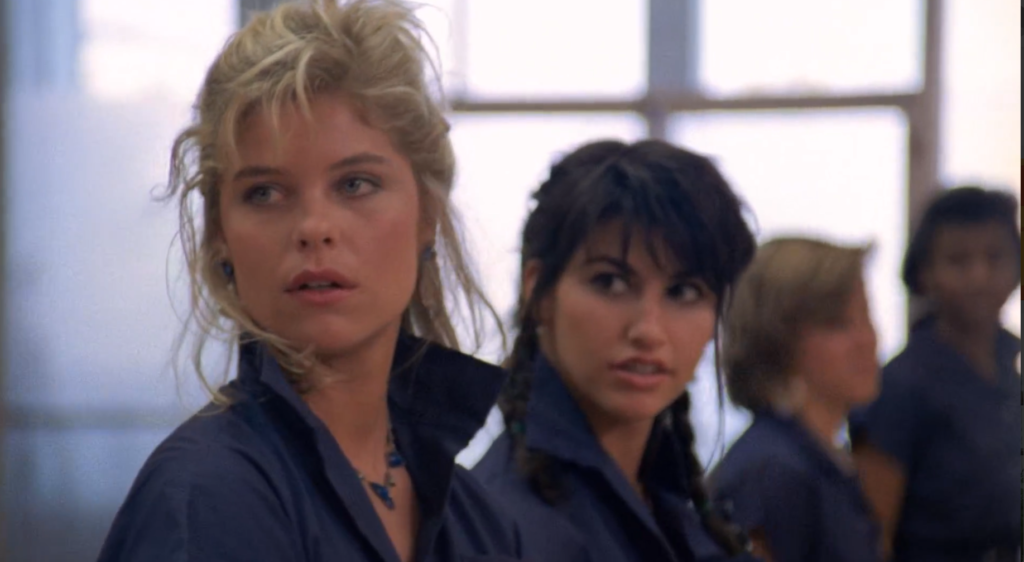
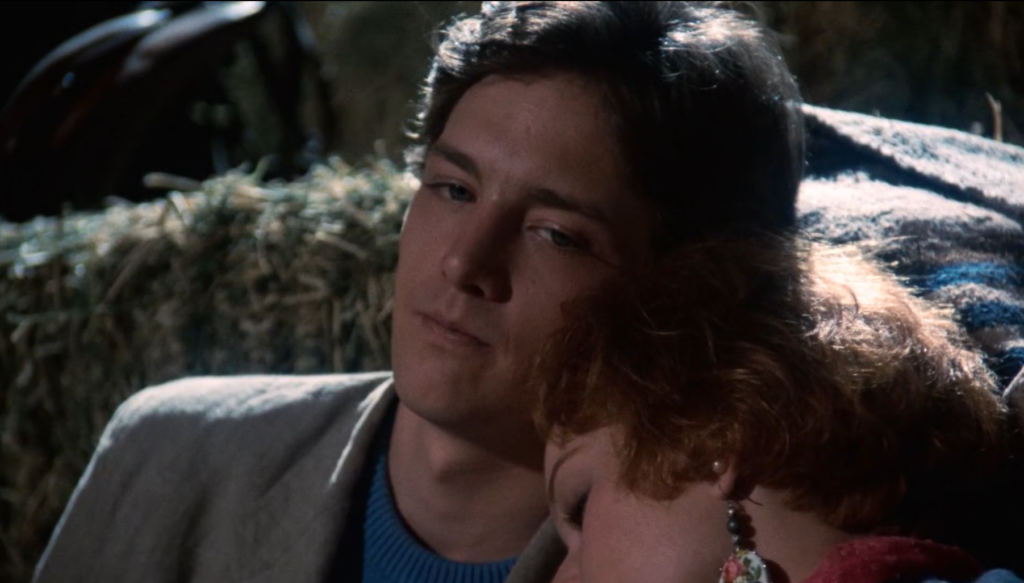
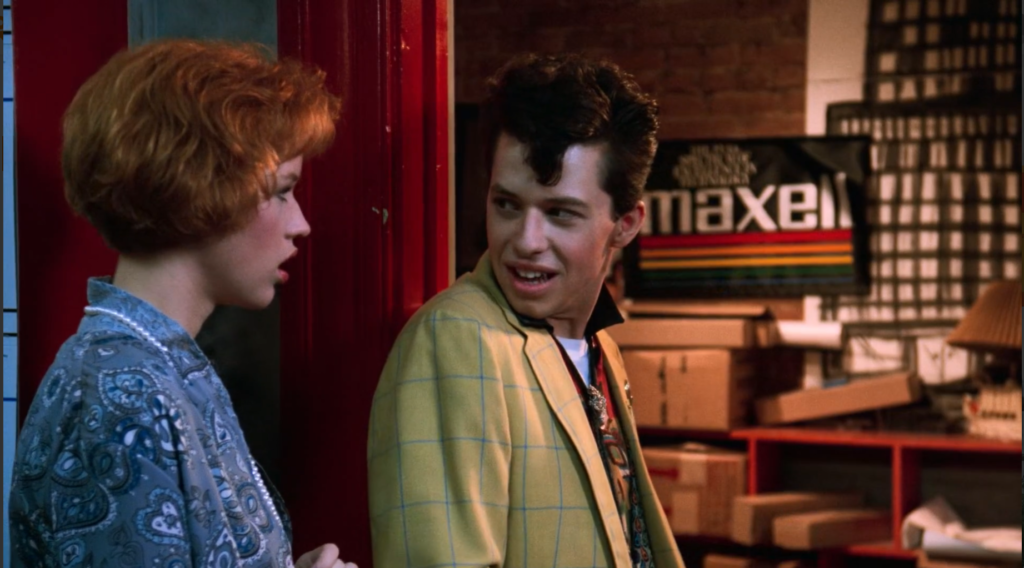
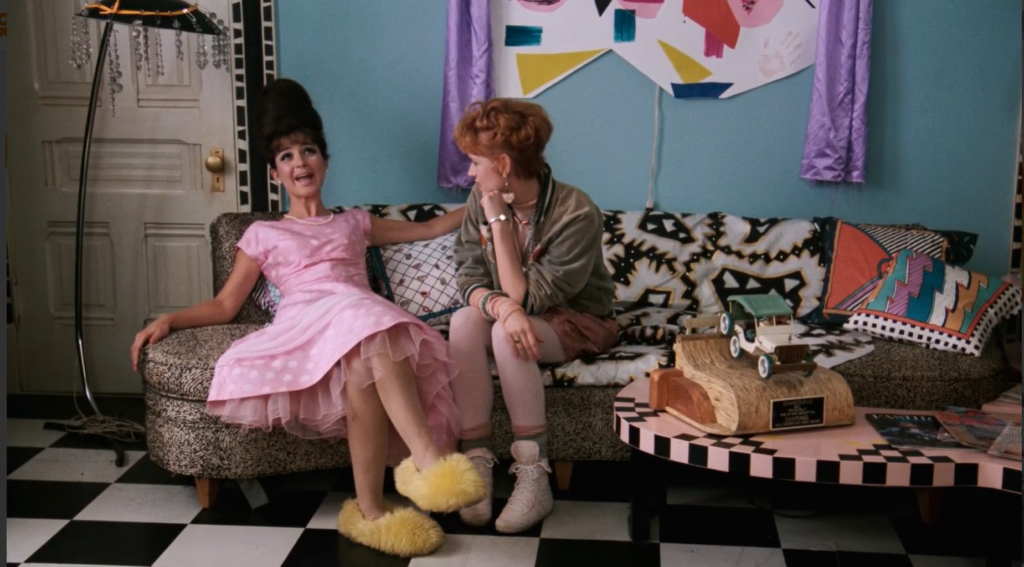
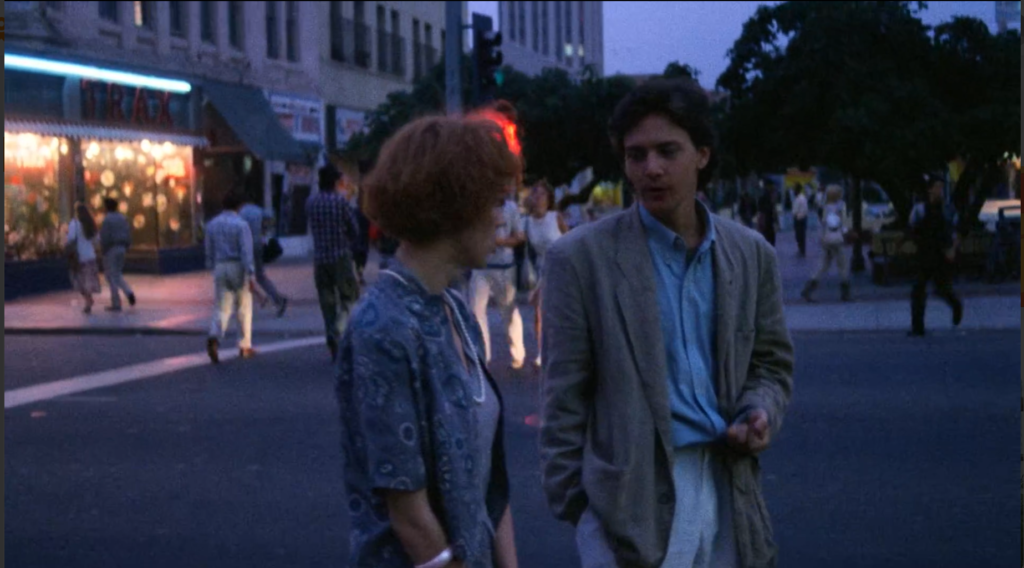
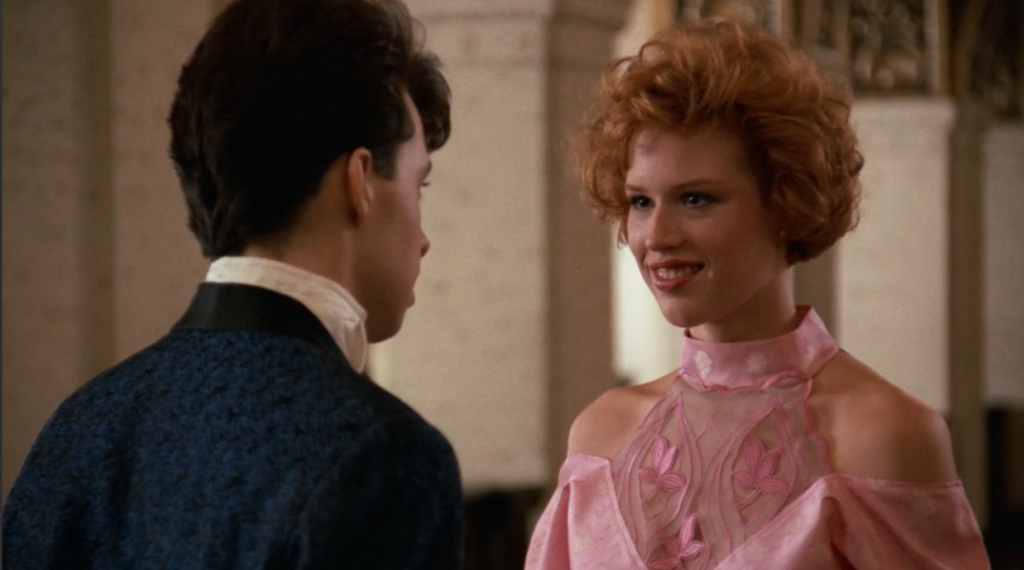
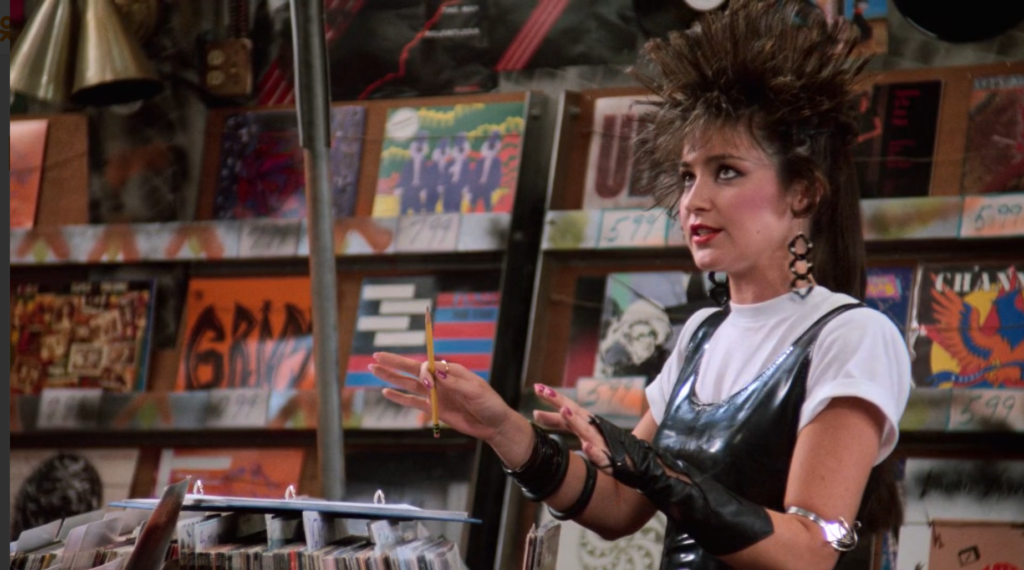
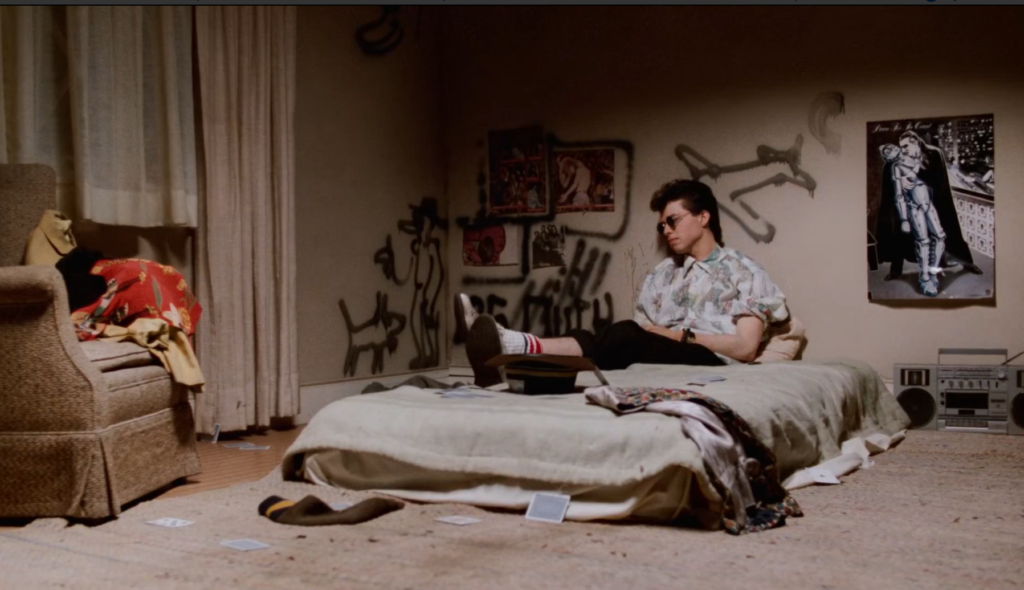
One thought on “Pretty in Pink (1986)”
First viewing (7/11/21). Not must-see.
Oh, teenage love! … So-so ’80s popcorn flick. Relatively harmless depiction of class division that has a few penetrating observations.
I just have one question: So… Mom walked out 3 years prior and Dad doesn’t have a job (hasn’t even looked for one) because he’s still heartbroken. The conflict about that results in the film’s best scene (between Ringwald and Stanton) but… what exactly have they been using for money in all this time?